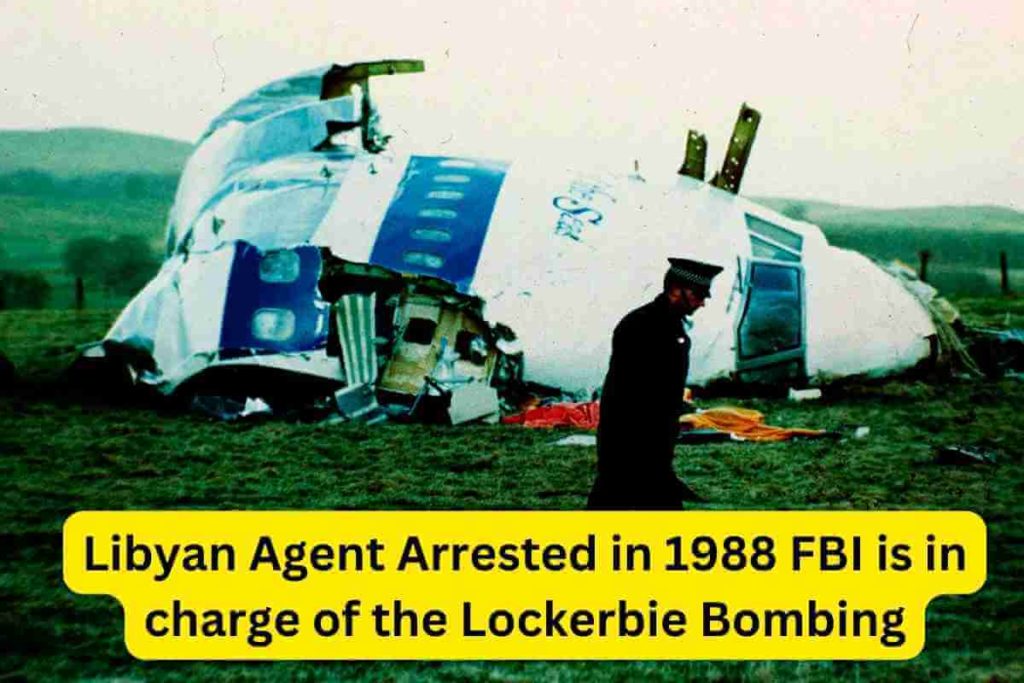WATERLOO — Officials said on Sunday that a Libyan intelligence agent charged in the 1988 bombing of an American aircraft over Lockerbie, Scotland, had been detained by the F.B.I. and was being extradited to the United States to stand trial for one of the worst terrorist assaults in American history.
The Justice Department had been trying to bring the operative, Abu Agila Mohammad Mas’ud, to justice for decades until he was finally apprehended. 190 Americans were among the 270 people murdered when Pan Am Flight 103 was bombed in 2020, according to the criminal accusations brought against Mr. Mas’ud by Attorney General William P. Barr.
Two criminal charges against Mr. Mas’ud include the destruction of an aeroplane that caused death. When the Justice Department released the accusations against him two years ago, he was being imprisoned in a Libyan jail for unrelated offences. How the US authorities went about securing Mr. Mas’ud’s extradition is unknown.
A three-part series on “Frontline” on PBS in 2015 focused more attention on Mr. Mas’ud’s alleged involvement in the Lockerbie attack. Ken Dornstein, whose brother was murdered in the assault, created and produced the television show. Mr. Dornstein discovered that Mr. Mas’ud was detained in a Libyan jail and even acquired photographs of him as part of his inquiry.
“If there’s one person still alive who could tell the story of the bombing of Flight 103, and put to rest decades of unanswered questions about how exactly it was carried out — and why — it’s Mr. Mas’ud,” Mr. Dornstein wrote in an email after learning Mr. Mas’ud would finally be tried in the United States. I suppose the question is whether he’s finally ready to talk.
In 2012, Mr. Mas’ud admitted to the bombing and disclosed his involvement to a Libyan law enforcement officer after Col. Muammar el-Qaddafi was overthrown as the country’s leader. The Libyan official who had obtained the confession was interrogated by investigators once they learnt about it in 2017, which led to charges.
Although Mr. Mas’ud’s extradition would allow him to face trial, legal experts have voiced concerns about whether his jail confession from war-torn Libya would be allowed as evidence.
The third suspect in the attack is Mr. Mas’ud, a Tunisian-born man with citizenship in Libya. When Libya refused to extradite Abdel Basset Ali al-Megrahi and Al-Amin Khalifa Fhimah to the United States or Britain for prosecution, American efforts to prosecute them were thwarted.
The Libyan government decided to consent to a Scottish law trial being held in the Netherlands instead. In 2001, Mr. al-Megrahi was found guilty and given a life term in jail while Mr. Fhimah was declared innocent.
Despite the vehement protests of the victims’ relatives and of American authorities, including President Barack Obama, Scottish officials released Mr. al-Megrahi in 2009 because he had prostate cancer. Mr. al-Megrahi passed away in 2012, and his family challenged his conviction in Scotland after his death. However, last year, a panel of justices decided not to reverse the decision.
The bag containing the bomb used in the attack was sent to Malta by Mr. Mas’ud, according to the prosecution, who also claims that he played a significant part in the explosion. According to the prosecution, Mr. Mas’ud received instructions from Mr. Megrahi and Mr. Fhimah in Malta to set the timer on the device so that it would blow up the next day when the jet was in the air.
Mr. Mas’ud gave over the luggage to Mr. Megrahi, Mr. Fhimah, and Mr. Fhimah when they met him at the Malta airport on December 21, 1988. The luggage, according to the prosecution, was placed on a conveyor belt by Mr. Fhimah and eventually boarded Pan Am Flight 103.
Even before the incident, Mr. Mas’ud’s name came up twice in 1988. When Mr. Mas’ud and Mr. Megrahi were spotted at the Malta airport in October, a Libyan defector informed the C.I.A. they were there as part of a terrorist mission. The insider told the CIA that Malta was used frequently by Libya to undertake these assaults. The source revealed to the CIA that the couple had once again gone via Malta on the day before the Pan Am attack in December. Before the CIA enquired about the bombing from the informant, nearly another year had gone.
However, until Mr. Megrahi’s trial years later, investigators didn’t really focus on Mr. Mas’ud; instead, they insisted that Mr. Mas’ud didn’t exist. Additionally, Mr. Megrahi asserted that he did not know Mr. Mas’ud.
Follow us on Twitter

